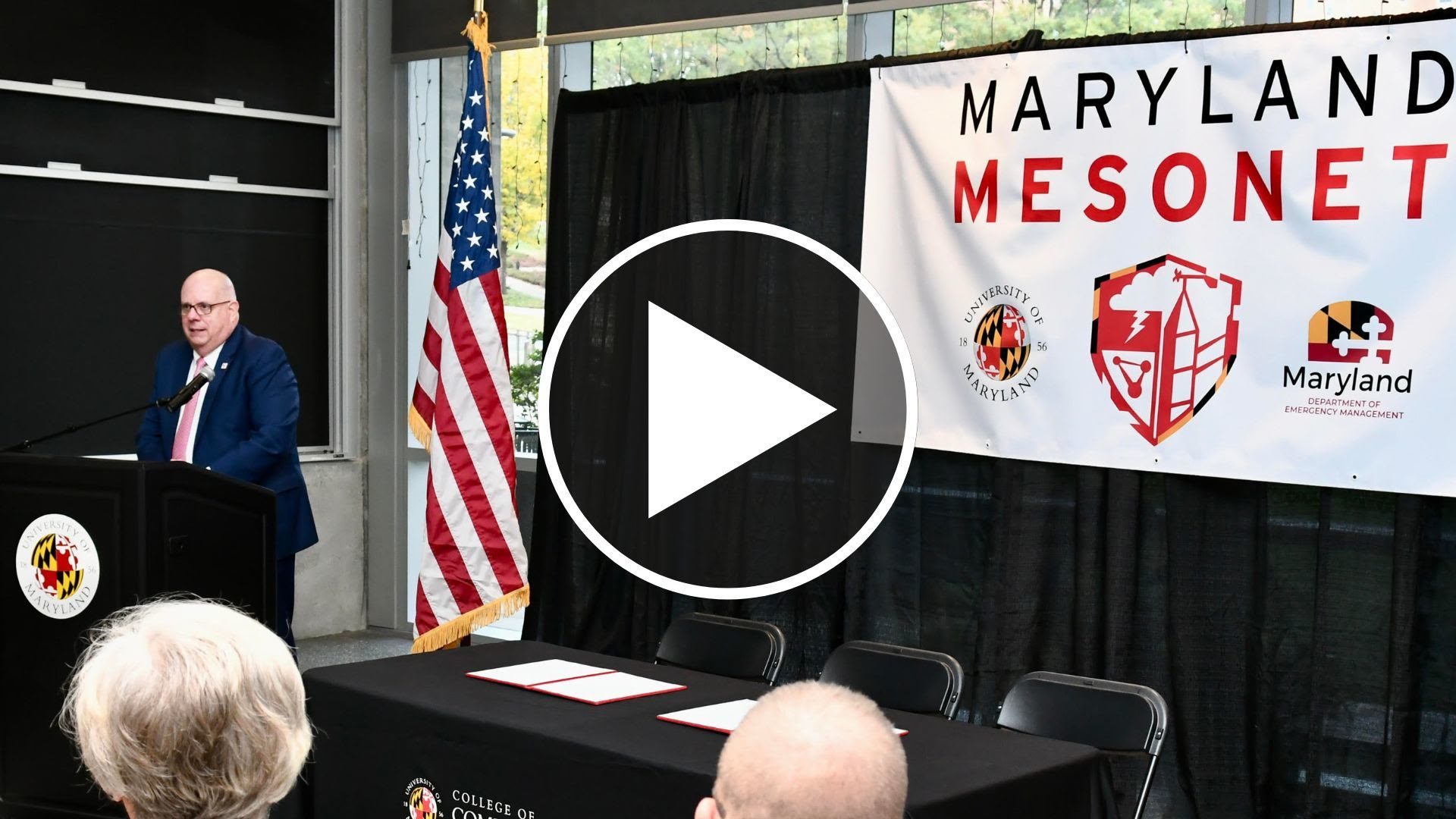
Partnership Between State of Maryland and University of Maryland Will Build World-Class Atmospheric System of Weather-Observing Towers
Will Provide Real-Time Monitoring To Improve Responses to Weather-Related Disasters
State Has Committed $4 Million to Maryland Mesonet
ANNAPOLIS, MD—Governor Larry Hogan today announced a groundbreaking partnership between the State of Maryland and the University of Maryland to build and operate the Maryland Mesonet, a state-of-the-art network of 75 weather-observing towers across the state that will provide real-time community-level monitoring and improve situational awareness during rapidly changing weather conditions.
“The Maryland Mesonet partnership we are announcing today, through a new memorandum of understanding between the State of Maryland and the University of Maryland, will build a world-class network of state-of-the-art environmental monitoring stations to provide real-time data 24 hours a day, 7 days a week, 365 days a year,” said Governor Hogan. “I am pleased to announce that we have committed $4 million dollars to this ambitious project, which will give our emergency managers even faster and more accurate satellite data to make critical decisions about preparedness and deploying resources.”
The state has committed $4 million to the Maryland Mesonet, which will provide state and local emergency management officials with data and analysis to enhance public safety, reduce community risk, and apply for disaster relief programs. It will also provide high-resolution meteorological observations to the National Oceanic and Atmospheric Administration, helping improve the regional weather forecast and better protect residents and businesses.
“We are proud that the Maryland Mesonet expands the University of Maryland’s deep commitment to service for our state,” said UMD President Darryll J. Pines. “Weather has been increasingly challenging to predict, and our scientists will play a leading role in providing high-resolution atmospheric data to NOAA to improve regional weather forecasts. We will also work to inform local decision-makers who can better protect Marylanders and their businesses.”
The project will also support the development of mesonet-data-based applications for state and local agencies, the NWS, Maryland school systems, farmers, fishermen, water managers, air-quality monitors, wind and solar energy producers, transportation professionals, and the media.
“This partnership means that Maryland residents and visitors will receive better forecasts and earlier lead time for severe weather warnings, like severe thunderstorm, tornado, and flash flood,” said Maryland Department of Emergency Management Secretary Russ Strickland. “Through continued monitoring, threshold alerting, instant verification, and post-event analysis, the Maryland Mesonet will provide more data to our emergency management team to continually improve planning and processes, and will set a roadmap for a more weather-resilient Maryland.”
Maryland is one of only five states where emergency management is a department led by a Cabinet-level secretary. Earlier this year, the governor signed legislation that established the Maryland Office of Resilience within the Maryland Department of Emergency Management.
-###-

